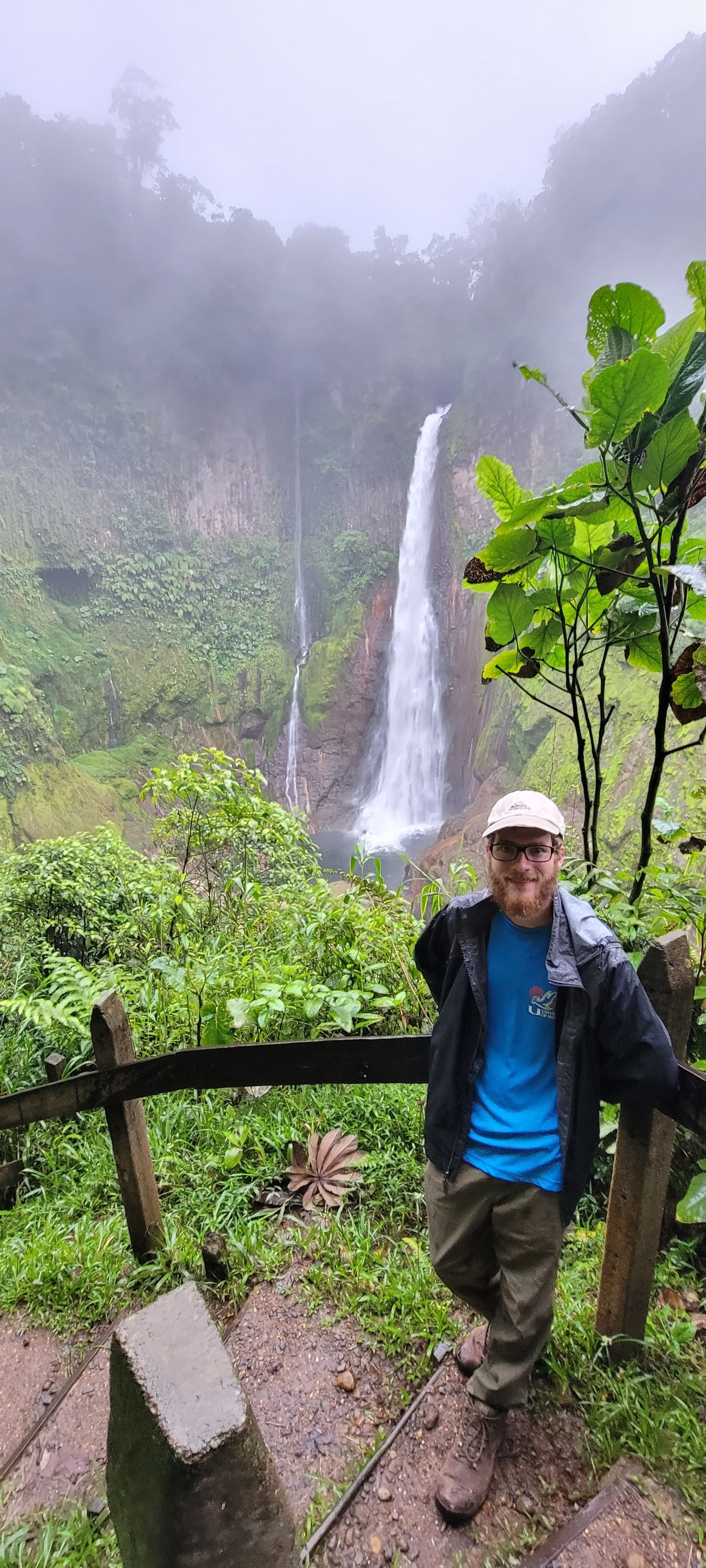Travis Altman '23, Zoo and Wildlife Biology
Travis Altman ‘23 had no questions about what he wanted to study in college. 
“I’ve always wanted to do something with wildlife or with nature. The fact that the classes at Malone are small and individualized and the option of zoo and wildlife biology as a major was the main draw for me,” he said. “I also have an environmental studies major, which will help me implement what I learn through my environmental science minor into society.”
Altman’s complementary programs of study have given him a beneficial and unique college experience.
“I really liked my botany class as well as my zoology and ecology courses. Being able to work here in the zoo on campus has been a great experience,” said Altman. “I’m also grateful for the opportunity to do undergraduate research as part of my major because I’d like to do more research in my future.”
Altman was able to further his field research interest through his senior year internship, far from home and between two volcanos.
“I interned in Vara Blanca, Costa Rica, in Heredia with ADE, in their subdivision Eco Guardianes, or Eco Guardians. They focus on creation care and implementing sustainable practices into local communities so developing areas start with a leg up in sustainable development practices,” he said. “The organization was mentioned by Dr. Lane, and Dr. Courter sent me an email about it, so I applied. I met Tomas, the founder of ADE, and he offered me the position pretty early on so I was excited to take advantage of the opportunity.”
While in Costa Rica, Altman gained valuable experience in a setting like no other.
“I was a bio-corridor manager, and my main role pertained to fauna. I was looking for animals, tracking their population numbers, and tracking the ecosystem health based on those numbers. I would walk through the rainforest every day cataloging what I saw, setting up cameras, setting beetle traps to gauge biodiversity, and other tasks like that,” said Altman. “Most days I was out in the field, usually by myself. It was an amazing experience to just explore. I was the only intern there who had a background in wildlife and animals, so I was pretty trusted and given responsibility.”
Altman was also able to take the experience and knowledge he was gaining and share it with local students.
“There was a period of time where we worked with local high school students, and my student was interested in fauna. I taught him to identify flora and fauna in the field, what different animal presences meant, bio-indicators to look for, and how to analyze animal populations and how that affects environmental health,” he said.
While Altman loved his job in research, there were multiple factors which he had to learn to contend with in order to stay safe on the job.
“It's a general rule of thumb that you don’t go into the jungle at night. Costa Rica is on the equator, so all days are 12 hours long; the sun sets at 6 every day. Sometimes I was out later than I realized, and it gets dark faster in the jungle,” said Altman. “I was walking back up the trail out of the jungle late one day, and I heard a few sticks snap and thought it was rain, but then I heard clustered movement. I didn’t stay long enough to find out what it was, but it felt like there was something really close by. That was the scariest moment by myself and that was the last time I was ever out that late.”
Often, the struggle was simply accessing the right field areas to perform his daily duties.
“Regularly due to weather and our vehicle capabilities we had trouble moving around. It wasn’t always easy to get rides to places to run tests and carry out our research,” said Altman.
Regardless of minor setbacks, Altman feels ready to go into the field as he nears the end of his Malone career.
“A lot of classes taught me data collection, and that really helped. Having experience in field work from that class was crucial as well,” he said. “ I have a great baseline of general taxonomy, and the zoo work I did provided me a leg up which other interns didn’t have from their schools. As a result, I was the go-to guy for a lot of tasks.”
Altman hopes to take both his internship experience and lessons he’s learned at Malone to great heights in the future.
“I’m hoping to get a research fellowship, with a nonprofit or something, or perhaps I’ll go to grad school and develop the research that I’ve started here at Malone; studying the effects of magnetoreception in trees that are commonly used for reforestation in the midwest.”
